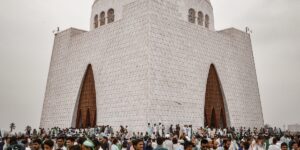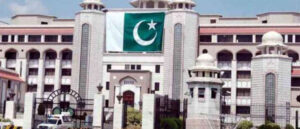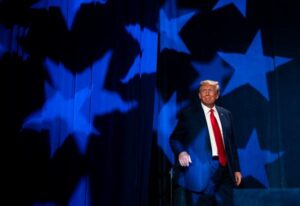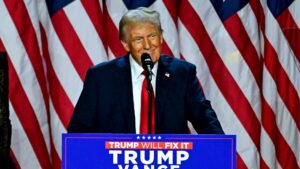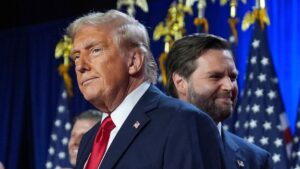Mushahid Hussain: Pakistan Faces Unprecedented Political Crisis, Echoes of 1988-89 Turmoil Resonate
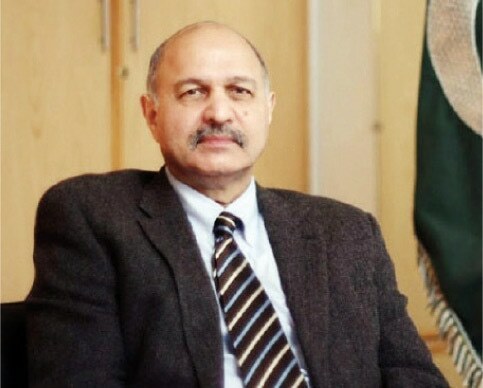
Senior politician and multiple-time senator on a Pakistan Muslim League (N) (PML-N) ticket, Mushahid Hussain Syed recently remarked that Pakistan has regressed into one of its worst phases, comparable to the tumultuous period of 1988-89. He expressed concerns that the nation has returned to the “doctrine of necessity,” where decisions bear little connection to ground realities.
Mushahid Hussain served as Information Minister during a PML-N government, later becoming a PML-N senator, and he had an inkling that the Pakistan Tehreek-e-Insaf (PTI) government would be constitutionally ousted. He highlighted the events of 2017 when, in the absence of any solid evidence in the Panama Papers scandal, Prime Minister Nawaz Sharif was disqualified over an iqama. It was well-known at the time who constituted the judicial bench and who the Chief Justice was. This historical context reflects his perspective on the recurring nature of political intervention and manipulation in Pakistan.
Reflecting on the political scenario of the late 1980s, Mushahid Hussain explained how after the end of military rule, Benazir Bhutto’s government was formed in coalition with other parties, while Nawaz Sharif held the position of Chief Minister in Punjab. During this time, the federal government encountered stiff opposition from Sharif, leading to the dismissal of Bhutto’s government in 1990. When Sharif subsequently became Prime Minister, Mushahid was a prominent supporter within PML-N. Although he now labels that era as one of the worst, he suggests that conditions today may be even more precarious, despite the apparent differences.
In 1988, after the death of General Zia-ul-Haq, elections led to Benazir Bhutto’s ascension as Prime Minister. During that period, her government faced no accusations of corruption, even from Muhammad Khan Junejo, who had been removed from office by Zia. Despite political opposition, he was respected for his integrity. Junejo, as a leader of the Muslim League, had a notable stance; he had successfully removed martial law but clashed with Zia over Afghanistan. Today, Mushahid suggests, the political atmosphere is far more divisive, with unrest fueled by misinformation, unsubstantiated accusations, and opportunistic maneuvering.
Political differences existed between major parties then, but neither PML-N nor the Pakistan People’s Party (PPP) sowed discord to the extent seen today. According to Mushahid, the present crisis began with the ousting of the PTI government and the accusations that followed. He claims that the turmoil since April 2022 is largely driven by PTI’s refusal to accept the constitutional removal of their government, leading to instability and distrust among the populace. This reaction, in Mushahid’s view, stands in stark contrast to PML-N and PPP, who despite their grievances, allowed the PTI government to complete its term from 2018 onward.
The role of PTI’s leadership, particularly former Prime Minister Imran Khan, is highlighted as a major factor in the country’s current state. Mushahid points out that Khan’s rhetoric about foreign interference – such as his infamous waving of a purported American “cipher” – stoked fears and fueled conspiracy theories, rather than promoting stability or cooperation. Khan’s reluctance to engage in dialogue with opposition parties, citing corruption, created further division.
Mushahid also emphasized how former PML-N leaders, including Nawaz Sharif and Asif Ali Zardari, have handled allegations and judicial proceedings differently. Both leaders faced serious charges but chose to engage with the legal system rather than call for mass protests or widespread disruption. Even during the toughest times, when Nawaz Sharif and others were facing multiple cases, they opted not to incite public disorder. Today, however, Khan’s PTI seems to take an opposing approach, regularly calling for rallies, protests, and even marches on Islamabad to demand his release.
This brings us to the current scenario, where Islamabad is set to host the Shanghai Cooperation Organization (SCO) summit, with dignitaries from twelve countries expected to attend. Mushahid finds it troubling that PTI’s leader would prioritize his own legal battles over national interests, particularly as Pakistan welcomes important international guests. He fears that Khan’s threats to disrupt the summit demonstrate a lack of regard for the nation’s diplomatic obligations and risk isolating Pakistan further. He draws a parallel to 2014, when Khan’s protests allegedly led to the cancellation of a visit from the Chinese President, potentially delaying progress on the China-Pakistan Economic Corridor (CPEC).
In comparing today’s situation to the past, Mushahid questions how the nation has come to prioritize individual interests over collective well-being. He contrasts Khan’s stance with the measured responses of other political figures in the past, such as Junejo and even Benazir Bhutto, who refrained from such divisive tactics. According to him, if the PTI were to accept the constitutional processes and focus on constructive opposition, the current state of political turmoil could be significantly alleviated.
Mushahid also sheds light on PTI’s approach to governance during its tenure, contrasting it with PML-N’s and PPP’s readiness to put aside political differences in favor of national stability. He suggests that Imran Khan’s leadership style, marked by uncompromising stances and accusations of betrayal, has heightened political polarization. By refusing PML-N’s offer of a “Charter of Economy,” Khan missed an opportunity to stabilize the country’s economic trajectory, opting instead for a divisive narrative. Mushahid views these actions as missed chances for uniting the country around common goals.
Reflecting on the broader consequences of this divisive approach, Mushahid warns of the dangers of political instability. He argues that instead of building a robust democratic system, PTI’s methods may ultimately weaken the country’s foundations. He references Pakistan’s tumultuous political history, stressing the importance of fostering democratic norms over self-interested agendas. He remains hopeful that PML-N’s inclusive approach can bring about a more stable political landscape.
In his final comments, Mushahid appeals to the political leadership across all parties to prioritize Pakistan’s interests over personal or party gains. He urges politicians to recognize that Pakistan’s challenges are better addressed through dialogue, cooperation, and a shared commitment to democracy. Without these, he cautions, the country risks repeating its mistakes and undermining the progress made in previous decades.
As the country stands at a critical juncture, Mushahid’s perspective underscores the need for introspection and recalibration within Pakistan’s political sphere. The specter of the 1988-89 crisis serves as a reminder of the costs of political instability, yet he maintains that the present situation demands an even greater sense of urgency and responsibility. His message is clear: Pakistan must prioritize unity, stability, and constructive dialogue to overcome its current challenges. Whether the political establishment will heed this call remains to be seen, but Mushahid’s remarks reflect a growing sentiment that Pakistan cannot afford to repeat its past mistakes. In this era of rapid change and growing uncertainty, Pakistan’s leaders face a historic responsibility to steer the nation toward a path of stability and progress.

